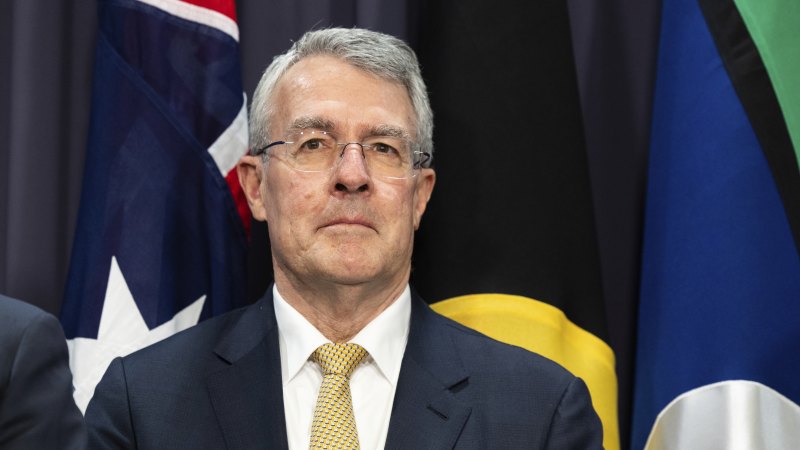Attorney-General must approve journalist prosecutions under major secrecy overhaul

Save articles for later
Add articles to your saved list and come back to them any time.
Journalists will not be prosecuted for breaching certain secrecy laws without the intervention of the Attorney-General, as part of a legal overhaul that will see criminal liability stripped from almost a fifth of Commonwealth secrecy offences.
But a new criminal offence will also be created if public servants cause public harm by breaching confidentiality, following a major secrecy review released in the days after Defence whistleblower David McBride pleaded guilty to multiple charges for leaking secret documents to journalists.
Attorney-General Mark Dreyfus has announced an overhaul of secrecy provisions that includes greater protection of journalists.Credit: Alex Ellinghausen
The reforms will enshrine in legislation a rule created by former attorney-general Christian Porter, who ordered journalists could not be prosecuted without his consent after Federal Police raided the ABC following the broadcaster’s coverage of war crimes investigations, facilitated by McBride.
“The Albanese government believes a strong and independent media is vital to democracy and holding governments to account,” Attorney-General Mark Dreyfus said. “Journalists should never face the prospect of being charged or even gaoled just for doing their jobs.”
The exact offences the protection would apply to are still to be determined.
A major review commissioned by Dreyfus into secrecy provisions has recommended priority legislation be drafted so that the protection of public interest journalism be considered in applications for search warrants in the investigation of secrecy offences.
It has also called upon Commonwealth departments to investigate the potential for a public interest journalism defence for breaches of confidentiality laws.
The review, undertaken by the Attorney-General’s Department, said the utility of offences protecting the disclosure of certain information had come into question following major data breaches involving Optus and Medibank, as well as the PwC scandal, which exposed the hindrance of secrecy laws in investigating tax advisers’ alleged breach of confidentiality provisions.
Dreyfus said criminal liability would no longer apply to 168 of 875 secrecy offences, and instead a new, general criminal offence would be created, in part to address the issues raised by the PwC scandal.
The departmental review found secrecy offences were only necessary for the protection of essential public interests “of sufficient importance to justify criminal sanctions” and proposed a harms-based principle so that criminal liability was only applied when the public interest was put in danger.
It urged the government to consider alternatives to criminal liability, including civil and administrative penalties.
“This approach reflects that there should generally be a high threshold for criminal liability to be imposed,” it says, adding the protection of security and defence of Australia as examples, as well as life and physical safety.
McBride’s legal team will front an ACT Supreme Court registrar on Thursday to set down a sentencing date after the former military lawyer entered a guilty plea to theft of Commonwealth property and two related charges on Friday for disclosing confidential documents to journalists.
A court hearing last week heard McBride had leaked details of war crimes allegations because he believed special forces soldiers were being improperly investigated at the behest of the military’s top brass. However, he said in his record of interview the resulting media stories had used the documents to publish “the opposite of what I believed”.
McBride’s solicitor Mark Davis said his client had entered the guilty pleas because he had been given little other choice after Justice David Mossop and the Court of Appeal rejected defence barrister Stephen Odgers’ argument that McBride had disobeyed orders but was bound by a higher duty to act in the Australian public interest.
Dreyfus – who has rejected calls to intervene in the case, saying it could politicise the prosecution – last week canvassed the creation of a new, independent agency to protect whistleblowers.
Cut through the noise of federal politics with news, views and expert analysis from Jacqueline Maley. Subscribers can sign up to our weekly Inside Politics newsletter here.
Most Viewed in Politics
From our partners
Source: Read Full Article
